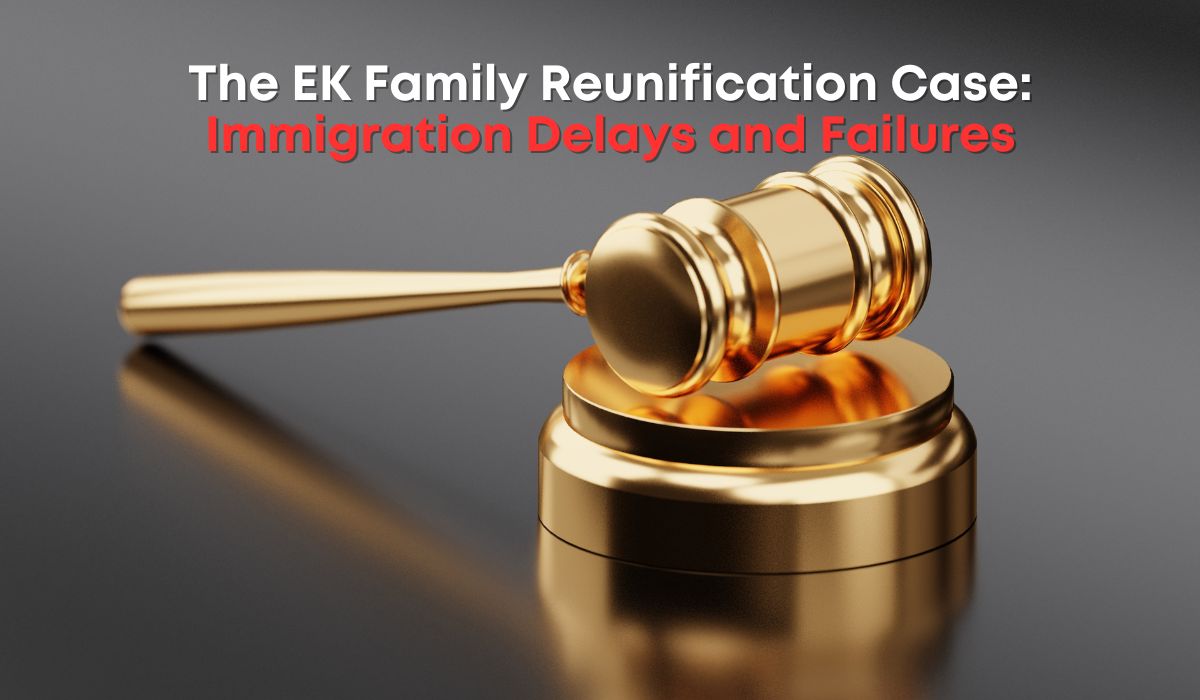The tragic EK Family Reunification Case (Secretary of State for the Home Department v EK [2024] EWCA Civ 1601) highlights the profound human cost of immigration policy failures. This case raises critical questions about the rights of asylum-seeking families, the state’s obligations, and the judiciary’s role in resolving such sensitive issues. The EK Family Reunification Case serves as a stark reminder of the urgent need for reform in handling family separation. Ultimately, the EK Family Reunification Case underscores the importance of balancing immigration enforcement with compassion and human rights.
The Human Story Behind the Case
At its heart, this case involves a Turkish Kurdish family—a mother, father, and their two young sons, aged six and nine—who embarked on a perilous journey to the UK in July 2024. In the chaos of attempting to board a small boat near Calais, the parents were tragically separated from their children, who made it to the UK while the parents remained behind in France.
For six days, the children believed their parents had drowned. Meanwhile, the parents, bereft of information, feared the worst. When contact was re-established on 25 July, the family’s ordeal was far from over. The children were placed in foster care, and the parents initiated legal steps to reunite with them in the UK.
The Legal Battle
On 21 August 2024, the parents formally applied to the Home Office to join their children in the UK. Despite promises of expedition, the Home Office’s inaction led to a judicial review application filed on 30 September. The grounds were clear: the Home Office had a duty to act in the children’s best interests, uphold their right to family life under Article 8 of the European Convention on Human Rights (ECHR), and protect them from inhuman and degrading treatment under Article 3.
The High Court granted an interim order on 31 October, instructing the Home Office to admit the parents to the UK “as soon as reasonably practicable.” However, instead of complying, the Home Office appealed the order, citing concerns that allowing the parents to reunite with their children in the UK could incentivize other families to undertake similarly dangerous journeys.
France or the UK?
Central to the legal dispute was whether the family should be reunited in France or the UK. The Home Office argued that sending the children to France was the appropriate course of action, as admitting the parents to the UK might encourage more parents to send their children across the Channel unaccompanied.
The parents, on the other hand, wished to join their children in the UK, citing fears of persecution and mistrust of the French asylum system. Their refusal to claim asylum in Belgium or France was based on deeply held perceptions of danger, whether or not these fears were objectively well-founded.
While the French authorities agreed in principle to take back the children, progress was hampered by bureaucratic delays and a lack of communication. By the time of the appeal hearing on 17 December 2024, the French authorities had still not conducted the necessary child protection assessments.
The Court of Appeal’s Decision
On 20 December 2024, the Court of Appeal overturned the interim order, granting the Home Office’s request for a stay. The court held that the initial judge had erred in dismissing the Home Office’s arguments about the potential for incentivising dangerous crossings and in underestimating the feasibility of reuniting the family in France.
However, the judgment also highlighted systemic failures on both sides of the Channel. Despite months of discussions between British and French officials, no practical steps had been taken to reunite the family. The lack of coordination, transparency, and urgency was striking.
Reflecting on the Bigger Picture
This case is emblematic of the broader challenges facing the UK’s immigration system, particularly in dealing with vulnerable families. While the Home Office’s concerns about incentivising dangerous crossings may hold some weight, the prolonged separation of young children from their parents is a humanitarian crisis that demands swift resolution.
The UK’s policy of deterrence must be balanced against its legal and moral obligations under international law. Families who have already suffered unimaginable trauma should not be subjected to further delays and uncertainty due to bureaucratic inefficiencies.
What Needs to Change?
- Faster Family Reunification Processes: Whether in the UK or France, separated families should be reunited within days, not months. This requires streamlined procedures and better coordination between governments.
- Clear Bilateral Agreements: The UK and France must establish formal agreements to handle cross-border family reunifications efficiently.
- Enhanced Communication: In this case, the French authorities were not informed of the parents’ location until the day of the appeal hearing. Such oversights are unacceptable and avoidable.
- Human-Centric Policy: Immigration policies must prioritise the best interests of children. The argument that admitting parents might encourage dangerous crossings cannot outweigh the immediate welfare of vulnerable children.
Final Takes
The case of EK is a sobering reminder of the human cost of immigration policy failures. It is a call to action for both the UK and France to prioritise compassion, efficiency, and cooperation in addressing the plight of separated families. For the children and parents caught in this legal and bureaucratic limbo, every day of separation is a day too many.
By addressing these systemic shortcomings, the UK can uphold its commitment to human rights while fostering a more humane and effective immigration system. The time to act is now.
Get in touch: For a comprehensive understanding of your options or queries on UK immigration matters, contact GigaLegal Solicitors at 02074067654 or click here to book a no-obligation consultation with an immigration expert.


